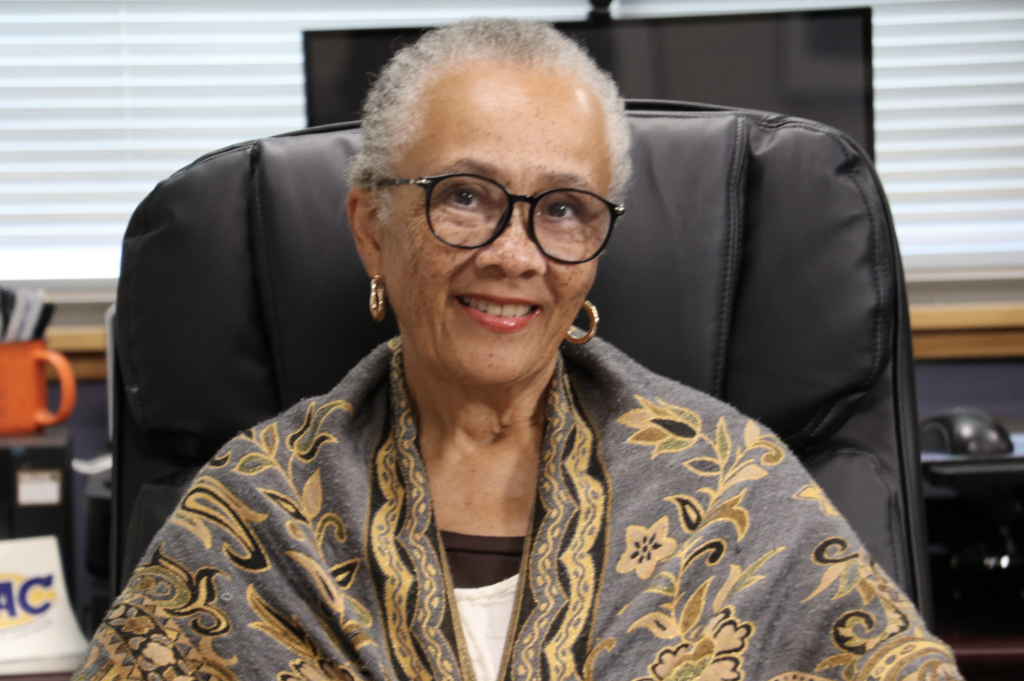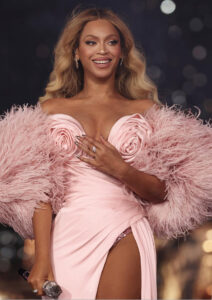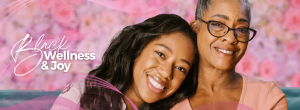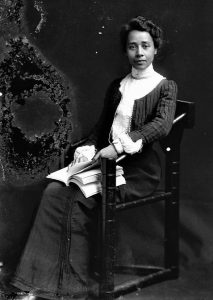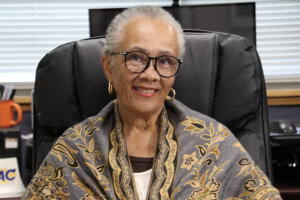 Jackie Jones, Pictured. Malik Edwards, Photographer
Jackie Jones, Pictured. Malik Edwards, Photographer
Sitting at the helm at Morgan State University’s School of Global Journalism and Communications, Jackie Jones’s life journey is best described as knowing when to jump headfirst, unafraid of where she lands. Today she oversees two dozen faculty members and more than 400 students. But the Pulitzer Prize-winning journalist with some 40 years in the newspaper business, is still winning hearts and minds.
A member of our inaugural PrimeTime 55+ cohort, Jones sat down with Unerased to talk about her new role and big vision for Morgan State University.
Unerased: Tell us a bit about your journey from the newsroom to the classroom at Morgan State University?
Jones: Most of my professional life has been unintentional. What happened is that I was a very good friend of DeWayne Wickham, whom I’ve known and respected for a long time. We spent a few years together on the NABJ (National Association of Black Journalists) board as immediate past president and parliamentarian. When it was announced that he got the job at Morgan, I sent him a note congratulating him, and he brought me in as a consultant. Then a couple of weeks before the semester started a teacher quit and he asked me to step in — at this point, I still thought I’d only be around a few months. A favor turned into another favor and another, and I’ve been here ever since. I didn’t plan it or see it coming… if you told me that I’d follow DeWayne as dean, I would have laughed you out the door. But in hindsight, I can see how working closely with him everyday to build support understand the legacy, mission, and intentionality of the program. So here I am.
Is academia something you grew to love over time? And what do you want to see differently now that the school is under your leadership?
Part of what made me fall in love is the feeling of a startup, of being involved in the development of things, programs, and partnerships with other universities like Pennsylvania State University, West Virginia University, Brigham Young University, North Carolina A&T State University and Howard…I love that even more than teaching. So even though I am not in the classroom now, it is teaching in a different way. We travel and take students abroad and around the country to work on reporting projects. I love exposing students to a world beyond Baltimore and the immediate region. I want to continue to grow and expand these programs. My style as a leader is more low-key because the initial phase of building these programs has been done. I get to spend more time engaging in negotiations and politicking with stakeholders because we have a reputation to back us up now.
What’s unique about Morgan’s journalism school and how should HBCUs invest in student journalists?
It’s really important for HBCUs to take a leadership role in reporting projects, developing initiatives, and thinking about how to change the way we structure the academy. We need to embrace flexibility and show that there are many ways to become a journalist and intentionally produce graduates who think about reporting differently. At Morgan we’re firm believers in experiential learning. We use a hospital teaching model that gives you hands-on experience at the same time you’re getting classroom experience. We look to our student media operations to make sure that they are reaching beyond campus coverage and getting into the community. We want students to keep top of mind that the world does not start and end on our campus.
How do you prepare Black students for tense situations?
The crux of journalism is understanding where people are coming from. Your job is to explain why people do the things they do. You are the window for readers, viewers, and listeners to why people are how they are. You have to learn how to describe that without judgment. So I think part of preparing them for tense moments or microaggressions in the field is teaching them to manage their reactions and remember the goal of the story. I brought a group of students to Greece and there was a student whose braids were touched by a local woman on the train. We know culturally, that you never do that with a Black woman’s hair! But, in the moment, the student thought through what does this mean? In the end, she realized that the woman was genuinely curious and not purposely offensive. They had a lively conversation and it was a great news piece for her to write about later. I think that’s the thread that we as Black people have to walk in journalism — is this genuine curiosity or true cause for offense?

